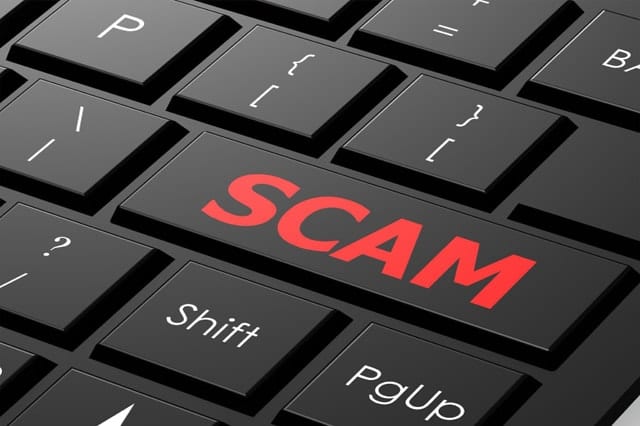Coupons help businesses attract customers, who in turn enjoy discounts on products and save a bit of money. It’s a win-win situation for both parties, and it’s something that fraudsters see as an opportunity to make money illegally. According to the Coupon Information Corporation (CIC), fraudulent coupons cause losses of more than $600 million every year. Be a skeptical shopper; use caution on coupons with offers that sound too good to be true, because they probably are. Safeguard your money and financial information by learning how coupon fraud works.
How Coupon Fraud Works
Coupon fraud is the intentional use of a coupon without obeying the terms for redemption. The fraud is also committed when a person uses a coupon for a product that he hasn’t bought. Retailers themselves can commit coupon fraud by seeking reimbursement from manufacturers for coupons that were not redeemed by customers or coupons for products the retailers haven’t sold.
To make things worse for the coupon industry, several scams revolve around coupons.
Coupon Certificate Book Scam
Businesses, self-employed individuals and charity organizations looking for fund-raising opportunities are encouraged by fraudulent promoters to buy coupon certificate books at discounted prices. These promoters claim the initial cost can be earned back by selling the coupon certificates individually, but in most cases they do not sell well and leave the buyers in the red.
Consumers who buy these certificates become victims themselves. To claim the actual coupons, the consumers must go through a dubious process, during which they are forced to pay large sums for bogus fees. They’re also often required to submit their personal and financial information, putting themselves at greater risk of identity theft.
And even if the coupons arrive on their doorsteps, consumers may find that the coupons are fake, expired or not valid for redemption.
In the end, only the promoters running the fraudulent operation makes money.
Coupon Clipping Scam
Work-at-home employees are hired for the simple act of clipping coupons. Promoters lure them using deceptive tricks, such as promising them huge profits without any risks and pressuring them to accept the opportunity before it’s too late. The scammers make money by failing to deliver on their promised salary or commission for the employees, sending the clipped coupons to manufacturers for redemption, and asking for membership, supply, and processing fees.
Online Coupon Scam
Because more coupons are going digital, fake coupon scams are frequently found online as well. You may have seen them on your Facebook and Twitter feeds. Typically, to get the coupon, you’re asked to sign up for a service, send a spammy link to friends, answer a survey, and other random acts designed to steal your personal and financial information. Most of the time, you get nothing despite your efforts, or you might receive a fake and invalid coupon. Even if the coupon is legit and redeemable, you’ll end up participating in coupon fraud. Some scammers don’t even bother creating fake coupons; they can just use images with links that lead you to malicious websites.
How to Spot a Fake Coupon
Save yourself from the embarrassment of handing in a coupon only to be told that it’s fake. If you chance upon a coupon offer, and you’re tempted to use it, verify its authenticity first. Here are some tell-tale signs that a coupon is fake or part of a scam:
- The coupon has a printed amount that’s more than the actual value of an item.
- The coupon has an abnormally long expiration date.
- The coupon lets you get free items without a prior purchase. For instance, scammers in November 2014 spread an email that claimed to be from Pizza Hut and had a link to a free pizza coupon, apparently because the restaurant was celebrating its 55th anniversary. The link actually led to a malicious site.
- The coupon has no universal product code (UPC). If it does have one, the UPC shows signs of tampering, or its value code does not correspond with the description of the coupon.
- The coupon looks like it was reproduced from a scanner or photocopier.
- The coupon does not have terms of usage in fine print or, if it does, contain vague statements. Most of the time, legit coupons have a description that says they can’t be sold or transferred.
- You have to pay for the coupon and get it from a questionable website. Does the site contain a lot of expired coupons, outdated content, and broken links? Then you’re better off staying away from it and whatever sweet deals it claims to offer.
I’m Still Not Sure. Is My Coupon Really Legit?
Spotting a fake coupon, especially ones that look very real, can be difficult. The surefire way to verify a coupon’s validity is to contact the manufacturer who produced it. If the coupon is from a third-party business or affiliate company, check the company’s customer reputation in the database managed by the Better Business Bureau. And then there’s the CIC’s Coupon Alerts page where you can find a constantly updated list of counterfeit coupons. Lastly, visit Google, make a search about your coupon using terms such as “Pizza Hut coupon” or “Pizza Hut coupon fake,” and see if there are relevant news or articles that confirm your doubts.
What to Do When You Know a Coupon Is Fake
Using the information provided above, you should be able to distinguish with confidence a fake coupon from the real deal. If your coupon turns out to be phony or you’re aware of a coupon scam or fraud, contact the CIC or a law enforcement agency, such as the Federal Trade Commission and Federal Bureau of Investigation. Notify your family and friends, especially if they’re the ones who shared the coupons in the first place, so they won’t become victims themselves.


